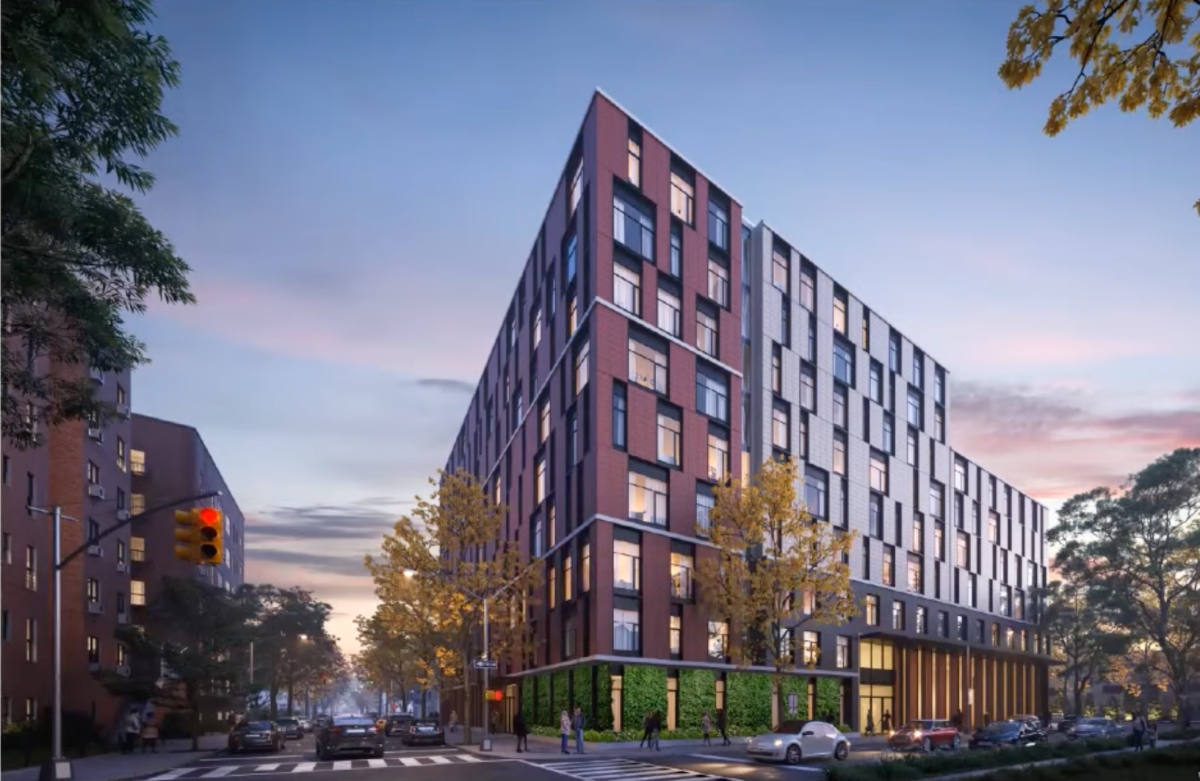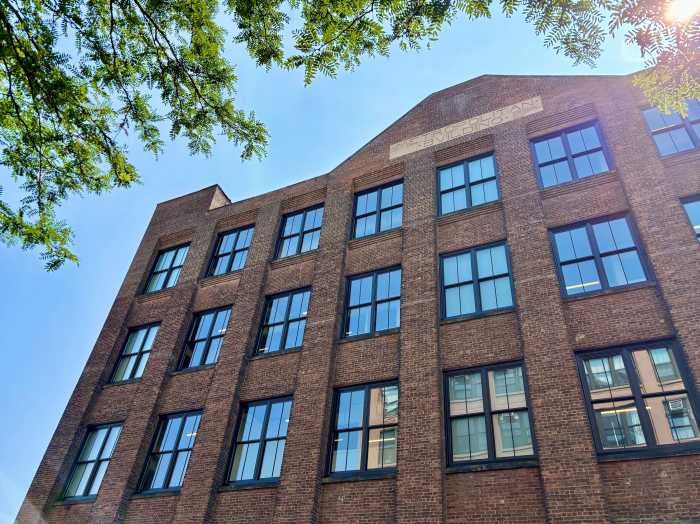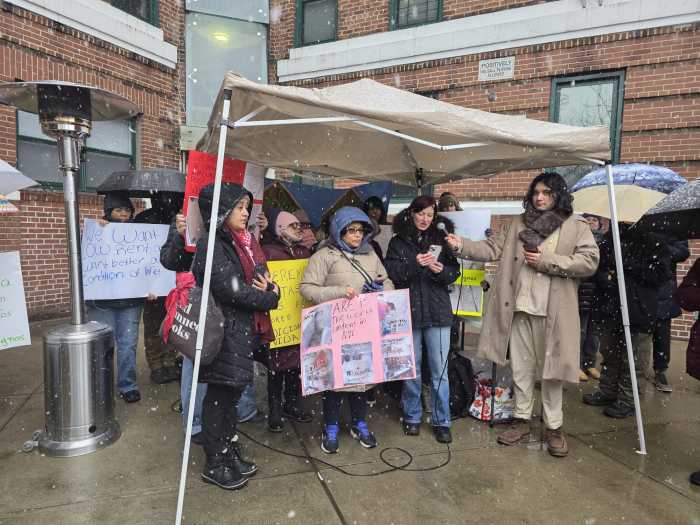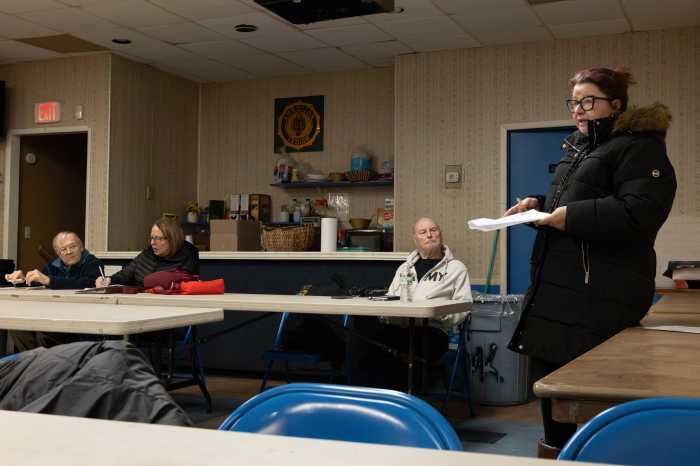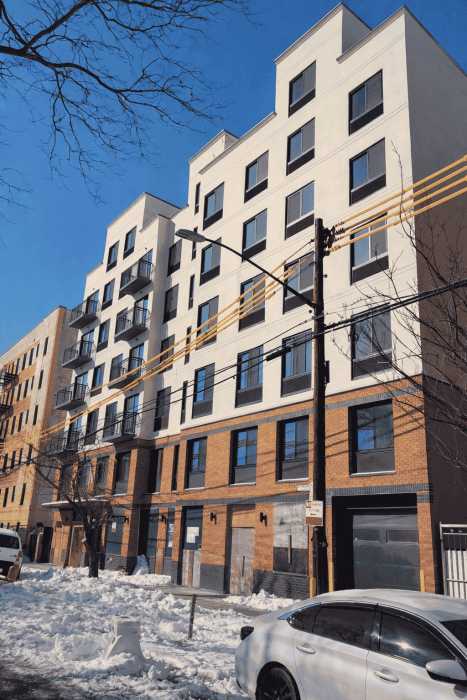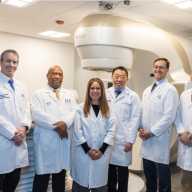Queens Borough President Donovan Richards held a public land use hearing on Thursday, Oct. 27, regarding The Reform Temple of Forest Hills and Queens-based real estate firm Werber Management’s proposal to develop a mixed-use building that will include space for the synagogue on a parcel of land the congregation owns.
An application was submitted for the proposed rezoning of The Reform Temple of Forest Hills, located at 71-11 112th St. The plan seeks an amendment of the zoning map, changing from an R1-2A district to an R7D district property.
The R1-2A zoning is a low-density contextual residential zoning district in NYC, according to the Department of City Planning. Only single-family detached homes can be built in R1-2A. The R7D district property is a contextual zoning district that allows for the development of medium-density housing and community facilities.
Another application was submitted for a zoning text amendment to designate the project area as a Mandatory Inclusionary Housing (MIH) area. This is a zoning tool developed by the Department of City Planning and the Department of Housing Preservation and Development, which requires developers to include affordable housing in areas that are rezoned to allow for more housing development, according to the New York City Council.
The proposed building in Forest Hills would be a 10-story structure featuring 153 rental units, with 38 units set aside for affordable housing, a ground-floor community facility space and underground parking for 60 vehicles, with additional space for bicycle parking, according to Vivien Krieger, co-chair of Zoning, Land Use & Development at the law firm of Cozen O’Connor.
“The project will utilize MIH Option 1, which will require 25% of the apartments, or about 38 units, to be permanently affordable to renters making an average of approximately $50,000 a year for a single person or $73,000 a year for a four-person household,” Krieger said. “The apartments will range from studios to four-bedroom apartments.”
After speaking with Community Board 6, Krieger added that they’re looking to include additional permanent units at 60% above what is required under MIH Option 1.
During an open house held in September at the Reform Temple with congregants, neighbors and Community Board 6, Krieger received feedback regarding the importance of enlivening the ground floor experience to keep in context with green spaces in the neighborhood.
Krieger reassured that the developers are embracing this idea and are working on how to beautify the space. In terms of sustainability, Krieger said there will be an installation of roof drains to allow control of the flow of stormwater. In conjunction with the roof drains, the developer will install either rooftop retention or detention tanks to capture stormwater.
“The green roof will be designed to retain stormwater through permeable materials and native plantings consisting of flood and drought-tolerant species,” Krieger said. “We’re also looking to provide enlarged tree pits along the property’s frontages which will be beneficial for stormwater uptake, and looking to maximize planting areas on the site.”
As the project will bring job opportunities to the community, Richards noted the importance of hiring a minimum of 30% local workers and partnering with local organizations and Minority- and Women-Owned Business Enterprises (MWBE).
Rabbi Mark Kaiserman of the Reform Temple, which voted 26-5 in favor of the project, said the current building can no longer serve its congregation needs nor does it allow them to fulfill their potential to be of service to the broader community.
“To keep our synagogue vibrant, we are presenting our plan to redevelop this property. Working with an excellent development partner, Benjamin Werber, we want to transform this lot into a new home with a temple and apartment building above,” Kaiserman said. “Several other NYC synagogues and churches have successfully accomplished this similar redevelopment. This beautiful new facility will also include affordable housing for teachers, public service workers and other essential members of the community struggling to access housing.”
According to Kaiserman, there were many challenges to maintaining the synagogue, as “finances in the nonprofit and small synagogue world are always tight.”
“We explored different options to keep the synagogue thriving in the future. For example, renovation of the building would be extraordinarily expensive, with funds we do not have,” Kaiserman said. “Even the best renovation would leave us with a building that is not friendly to those with disabilities.”
According to Kaiserman, the temple’s membership is eager to stay in Forest Hills, and finding an appropriate site in the community has proven unlikely. The synagogue’s membership mostly comprises residents from Forest Hills, Kew Gardens and Rego Park. It has served nearly 300 member families and the community, according to Kaiserman. Additionally, the temple is the only full-service reform or progressive synagogue in Queens with a Rabbi Kanter Religious School and programs for all ages and families.
The Reform Temple in Forest Hills was constructed in 1964, according to Kaiserman, and was not built to last beyond six decades.
At almost 60 years old, the building requires constant costly repairs, lacks modern technology and has staircases throughout, making it difficult for seniors and others with mobility issues to access the synagogue, Kaiserman said.
With the new development, the temple will own the first floor of the building that will be ADA-compliant, allowing members free and easy access to the entire synagogue. It will also offer a flexible design, enabling the temple to offer more programming to the community.
Kaiserman said the new facility will allow the temple to expand programming and meet the diverse needs of Queens and local communities.
“Redevelopment can be a challenge to a neighborhood. We recognize and appreciate our neighbors’ flexibility and kindness,” Kaiserman said. “Our temple families are neighbors and friends. This plan is one we developed for the future of our congregation, allowing us to work in partnership with a local developer to sustain the congregation and continue to be an essential part of Forest Hills and Queens. We think it will be a beautiful new spiritual space for our members and Forest Hills.”

